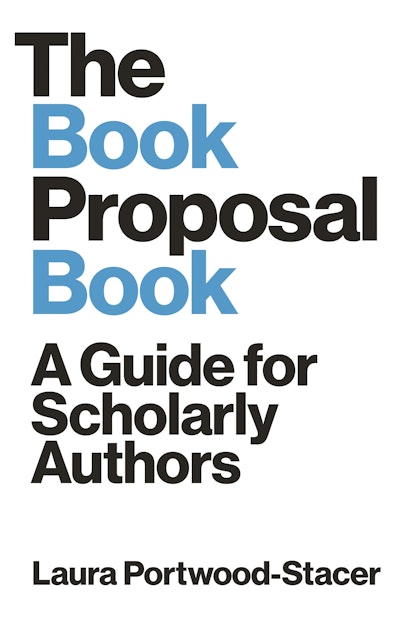When I first set out to write a guide to the scholarly book proposal and book publishing process, I had in mind readers like myself: people who feel anxious when facing the unknown; people who want to do well but aren’t always confident in their own abilities; people who thrive with concrete directions and a plan of action. If you’re that kind of person too, I can tell you that getting a scholarly book published may push all kinds of personal buttons for you. Even the most confident scholar might need a pep talk (or a few of them) along the way to becoming a published author. That’s why I want to share some key reminders you can return to when you find yourself in need of encouragement during the proposal and publication processes. (I personally wrote some of these things on sticky notes and stuck them to my computer monitor while I was working on The Book Proposal Book. They helped.)
It’s your book. You’re the one who will write the book and decide what ends up in it. When it finally gets published, your name will be on it. No matter what other people think of it or what changes they suggest you make to it, it’s still your project. You may feel pulled in different directions by editors’ or reviewers’ comments, and while it’s smart to remain open to helpful suggestions—some people will have great ideas that will improve your book—you have to stick to your own voice and vision. No one knows your data or your archive better than you do. And even if they did, no one else would have quite the same take on it or the same passion for the ultimate takeaway that you’ve landed on in your project.
You know your audience better than anyone. You’re not only the expert on your subject matter and argument, but you also have experience making that argument land with the people you hope will be your readers. You’ve probably been speaking directly to the kinds of people you care about reaching with this book for years, whether it’s been through giving talks, writing articles, teaching students, or participating in online and offline communities. Trust yourself to tell the story of your research in the way it needs to be told to the people you want to hear it. If you always keep your audience in mind—not the readers that you’re scared of, who will judge and discount your work, but the readers who are eager and open to learning from your expertise—you will be able to stay focused on what your manuscript needs and discard advice that doesn’t speak to your intended readership.
You’re looking for the right team of partners to produce your book and get it to the readers you care about reaching. To view editors, publishers, and even peer reviewers as collaborators (rather than gatekeepers) is to recognize the power you have as an author. While many scholars and writers are conditioned to want or need praise for their work to validate their own self-worth, you’ll have an easier time of this whole publishing process if you can let go of worrying about whether a given editor or reviewer likes you or your project. Being liked might matter to you on an emotional level, but in terms of your practical goal—which is to get your book published and in front of your desired readers—the important thing is to find just one editor and publisher who understand what you’re trying to do and have their own compelling vision of how they can partner with you to do it. Remind yourself that in pitching your book, you’re not seeking permission to put your work out into the world; you’re seeking the publisher who will do the best job of supporting you in that undertaking.
Only you can determine your goals for your book. The right publishing partner for you will depend on what you want your book to do. If your goal in writing a book is to advance your academic career, then you’ll need to find a publisher who will be respected by colleagues in your field, who will subject your book to rigorous standards of peer review, and who will help you make sure your book’s publication is noticed by enough people that it effectively enhances your scholarly reputation as the expert on your topic. If your goal is to have a crossover book that puts your ideas in front of a broader public, you might be looking for a different kind of publishing partner, one with a proven track record of promotion and distribution in the commercial markets you want to reach. If your goal is to write a book that students and researchers can find in university libraries and that you can maybe send a copy of to your best friend, you might be looking for a different kind of publisher still. Revisiting your own goals—beyond just “get a book published no matter what”—is empowering, because it helps you to keep in mind that you’re evaluating publishers just as much as they’re evaluating your project. They should be demonstrating throughout the submission and review process that they can and will do what is needed to publish the kind of book you want to publish, whatever that happens to be.
Staying true to your goals for your book isn’t just important when you’re looking for a publisher. It’s also important for maintaining perspective throughout the publication process and long afterward. I urge you to set goals for your book that don’t depend on the external approval of academic power-brokers, though I know that such approval may reasonably matter to you very much. Think about what intrinsic qualities of your book would make you feel proud of it and want to share it with others. Think about the readers who can benefit from your work. This is what will keep you going when times get tough. Remember: you don’t have to be perfect, and neither does your proposal or your book. You just have to have a message to share and readers you hope to share it with.
Laura Portwood-Stacer, PhD, is a developmental editor and founder of Manuscript Works, a consultancy serving academic authors around the world. She is the author of Lifestyle Politics and Radical Activism and previously taught media and cultural studies at New York University and the University of Southern California. She lives in Los Angeles. Twitter @lportwoodstacer

